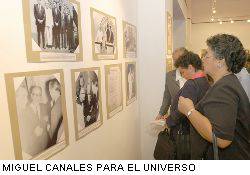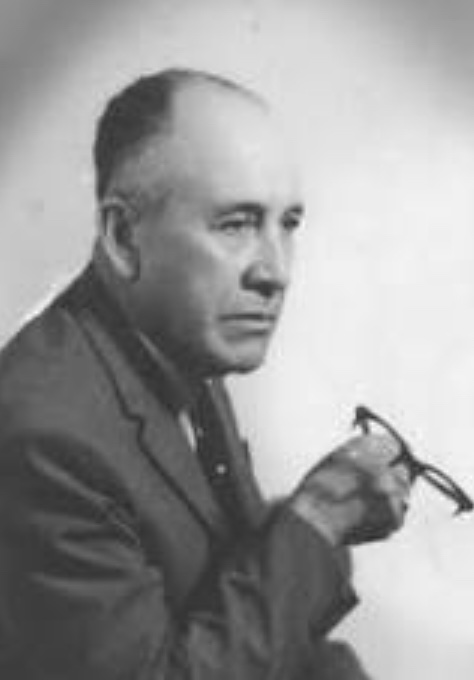Justino Cornejo Vizcaíno (Puebloviejo, Los Ríos, Ecuador, August 9, 1904 – Guayaquil, July 24, 1988) was a writer, educator, linguist, folklorist and scholar of Ecuadorian culture. He was a socialist and several times jailed at protests or by orders of Ecuadorian presidents. He published many articles in newspapers such as El Mercurio, El Día, Expreso, and El Telégrafo. He belonged to 22 foreign and 12 national institutions. In addition, he received twelve decorations, including that of Commander of the Order of Prince Henry (Ordem do Infante Dom Henrique) conferred by the President of Portugal. Some of his notable books include: “Diccionario del hampa guayaquileña” [Guayaquilean Underworld Dictionary] (1953), “Lengua i folclore” [Language and Folklore] (1963), and “El Quichua en el Castellano del Ecuador” [Quichua in Ecuador’s Spanish] (1967), to name a few. His complete works were published in 1989. Since then, previously unpublished works have been released, such as “Celda carcelaria” [Jail Cell] (2002), in which Cornejo writes about his experiences during his 90-day imprisonment in 1953 on the orders of Ecuadorian President José María Velasco Ibarra, who accused him of attempting to destabilize his government as an editorialist for La Nación newspaper. From 1946 until his retirement in 1968 he was a professor of Spanish and literature at the University of Guayaquil. In 1950, he became a member of Ecuador’s Academy of Language.
Partial list of decorations
- Isabel la Católica Medal (1969)
- The Order of Montalvo. (1970)
- Commander of the Order of Infante D. Henrique from Portugal
Family
He was born to Alberto Victorino Cornejo and Ninfa Vizcaino Viter. In 1934, he married Emma Cousin Carrión, with whom he had 3 children. His daughter Marigloria Cornejo Cousin is a poet and writer.
Teaching career
He attended primary school at the Miguel S. Seminario Municipal School in his hometown, from which he graduated in 1917. Two years later he received a scholarship of 20 sucres per month to attend the Juan Montalvo Normal School in Quito (a teacher-training school), from which he graduated in 1924. He then began a brilliant but self-sacrificing career as a teacher at the Tiburcio Macías Superior School in the city of Portoviejo, and three years later he was founding Director of the “Manta Mercantil” School of Commerce (whose name he changed to “Juan Jacobo Rousseu”).
From 1932 to 1935, he taught at his alma mater, Quito’s Juan Montalvo Normal School. He stopped working there after being arrested along with other teachers and educators on President José María Velasco Ibarra’s orders and imprisoned for 21 days. He then got a job as a teacher at the Manuela Cañizares National Normal School. In 1937, he left this job to return to the Juan Montalvo Normal School, where he taught until 1942. During this time, he was a professor of Spanish and Literature at Ecuador’s Central University in Quito. He was also appointed Director General of Education in 1942. He held this position until the end of Carlos Alberto Arroyo’s presidency, which was brought about by the Revolution of May 28, 1944. He was named rector of the Pedro Carbo National School in Guaranda in 1945, where he remained until 1946, when he was promoted to Inspector General of the Schools of the Republic. In 1946, he was appointed Provincial Director of Education for Guayas, and also became a full-time professor at the newly established Faculty of Philosophy and Letters at the University of Guayaquil, where he remained until his retirement in 1968.
Relationship to the House of Ecuadorian Culture
In 1945, due to political reasons, he was denied membership to the House of Ecuadorian Culture’s Guayas chapter. Years later when he was offered membership he turned it down. In August 2004, the Regional Foundation of Montubio Culture [La Fundación Regional de Cultura Montubia] and the House of Ecuadorian Culture in Guayas celebrated his centenary with an exhibition of 100 sepia photographs of him in its “Aracely Gilbert” Room.

Poet laureate Gabriela Mistral from Chile once wrote of him:
In Spanish (original): “A don Justino Cornejo, cuya conversación es una fiesta.
In English: (verbatim) “To Don Justino Cornejo, whose conversation is a fiesta.” or “To Don Justino Cornejo, with whom a conversation is like a fiesta.”
Death
He died of Parkinson’s disease on July 24, 1988 at the age of 84.
Video
Justino Cornejo’s daughter, poet Marigloria Cornejo Cousin, speaks about his legacy
Selected works
- Doña Zoila: esquema para una biografía novelada de la Zoila Ugarte de Landívar. Proemio del Luis F. Chaves. (1938)
- Fuera del diccionario (unas tres mil voces i acepciones que no constan en el léxico oficial castellano) (1938)
- Huellas de una labor: una conferencia, un programa y una circular (1938)
- Pedagogía y antipedagogía: (parte de la labor literaria realizada en favor de la cultura ecuatoriana, a lo largo de una vida de luchas y esperanzas) (1938)
- Bosquejo de una de ontología para los maestros (1946)
- Plumadas: (páginas de amor, de lucha y de verdad) (1947)
- Microsofía con una nota preliminar del autor (1952)
- Diccionario del hampa guayaquileña (1953)
- Bello: precursor universal (1956)
- Qué será? (1958)
- Chigualito chigualó: biografía completa del villancico ecuatoriano (1959)
- Apostillas a un Diccionario (1960)
- Lengua i folclore (1963)
- El Quichua en el Castellano del Ecuador (1967)
- Animales y plantas en la poesía popular ecuatoriana (1970)
- Sembrando al boleo: (un discurso que ya se leyó i otro que no se lee todavía) (1972)
- Hijos: y epílogo en dolor y tinieblas (1973)
- Olmedo y sus críticos contemporáneos: en el sesquicentenario de la publicación del “Canto a Bolívar” (1975)
- Bagatelas lexicográficas: 600 notas acerca de la lengua que hablamos (1976)
- LENGUA I FOLCLORE. MEDICINA POPULAR ECUATORIANA (Guayaquil, 1964) con abundantes recetas y remedios
- Obras completas de Justino Cornejo (1989)
- Pro terra patrum (1998)
- Haz de necrologías (2002)
- Celda carcelaria (2004)

